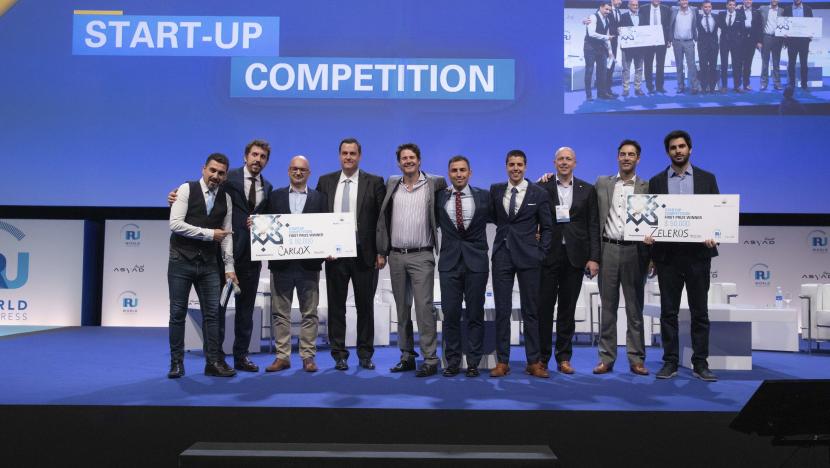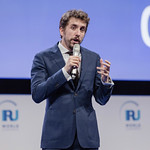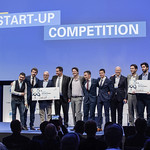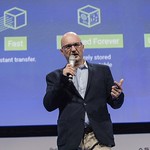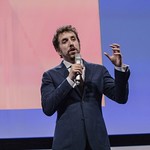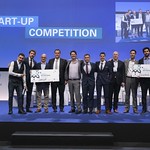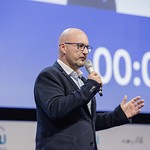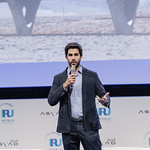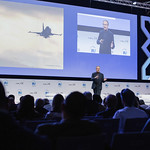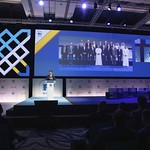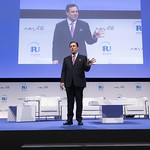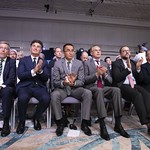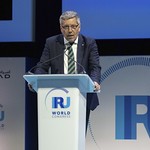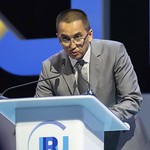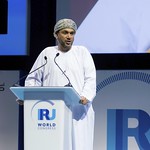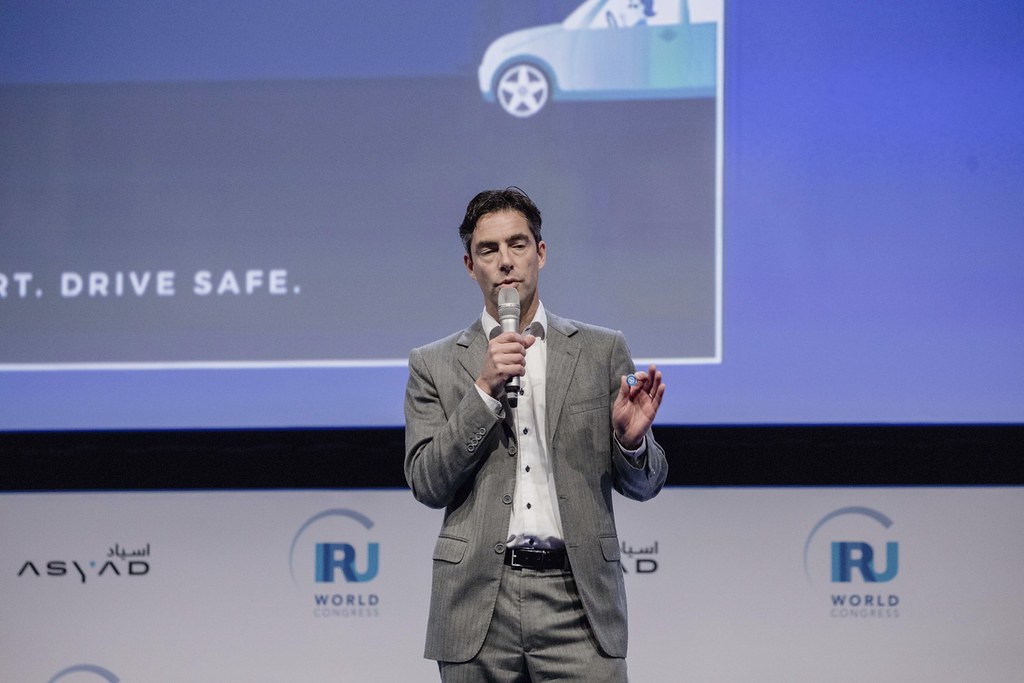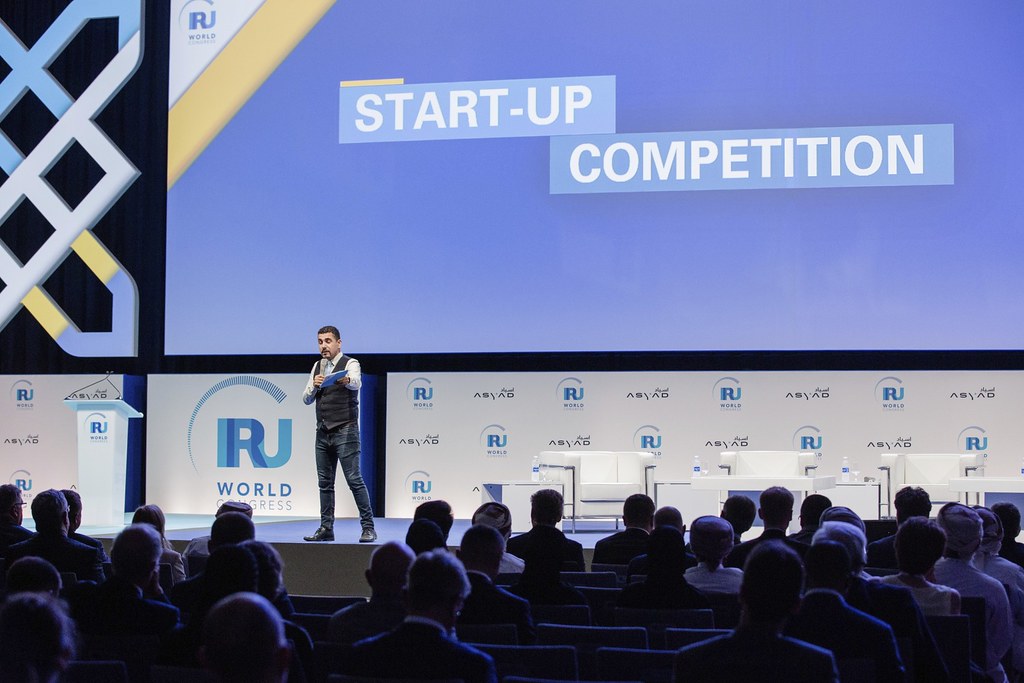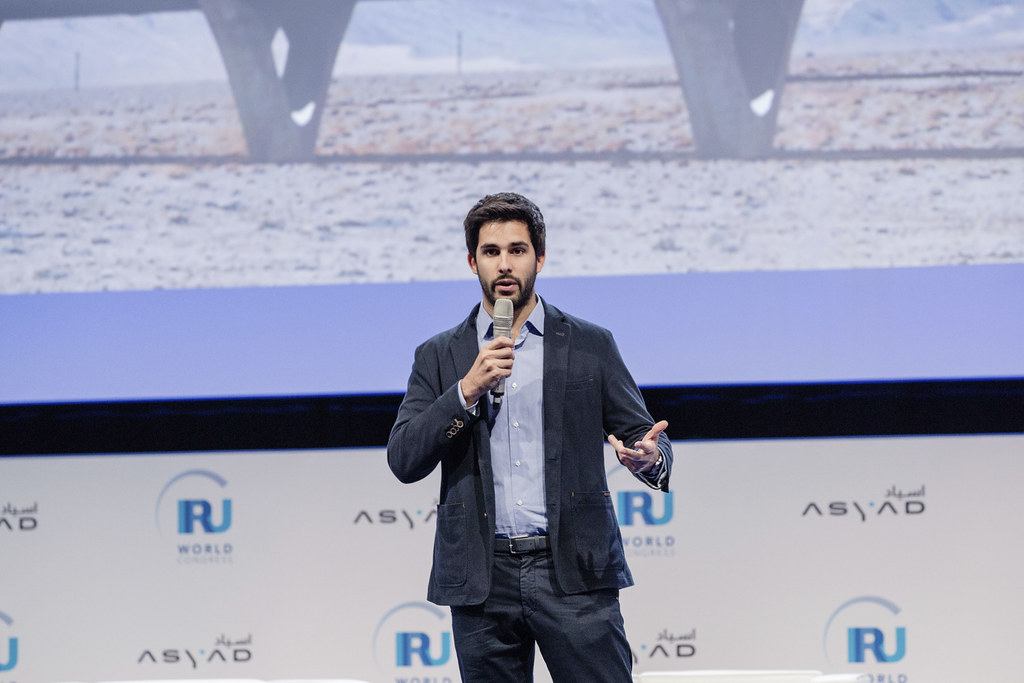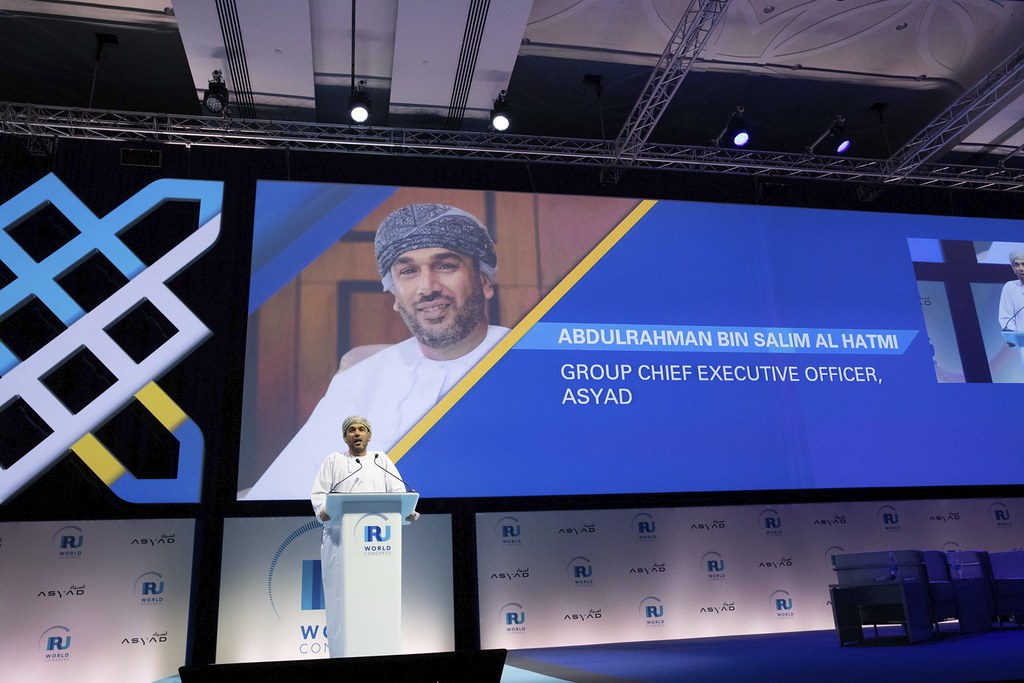Keynote speaker, André Boschberg then talked about the interface between technology and human endeavour – claiming the obstacles often lie with our ability to adapt to change rather than advances in technology.
Mr Boschberg is an integral part of Solar Impulse, the project which built the first solar-powered aircraft to circumnavigate the world. He spoke of taking risks, using problems as opportunities rather than focusing on solving them, and the importance of mind set. Which is exactly what Mr Boschberg did.
He was inspirational about the importance of technology as an enabler.
“It is not just how fast the technology is coming, but how quickly we can adapt to change as human beings. Change is a question of mind set and requires the ability to move forward from failure.”
The session moved to summarising what had been achieved during the IRU World Congress and what the future holds for the industry and for IRU.
Emil Kaikiyev, the Eurasian Economic Commission Minister in charge of Energy and Infrastructure, discussed the Muscat Compact. A voluntary framework of principles for governments, the industry and other stakeholders across the public and private sectors to work together to the mutual goal of better transport, the Compact covers the movement of people and goods, how the industry can best protect the environment and how we can all collaborate on, and exploit, technology innovations.
Secretary General of IRU, Umberto de Pretto, subsequently talked about the business leaders and ministerial dialogue that had taken place during the Congress, “Eighteen governments from the region and beyond - friend and foe - sat around the same table and discussed opportunities in transport, trade and mobility – opportunities that transcend politics."
"Opportunities that bring us together, rather than keep us apart.”
He also spoke of the roundtable sessions that had taken on current challenges, with rich discussions from a diverse array of speakers in nine key areas for the industry’s future – centred around innovation, governance and future-proofing business.
IRU President Christian Labrot presented the Grand Prix d’Honneur, awarded posthumously to Karen Verbrugge, a 55-year old bus driver and hero from the Belgium company De Lijn. He thanked the Congress host, Asyad, as well as sponsors and participants, ending on a call to action to, “keep working together to take road transport, and the communities and economies we serve into a prosperous future.”
HE Eng. Dr Ahmed Mohammed Salem Al-Futaisi, Oman’s Minister of Transport and Communications, spoke warmly about the success of the IRU World Congress and thanked the attendees for coming.
Finally, participants at the World Congress, from over 75 countries, were invited to sign the Muscat Compact at the end of the plenary.

